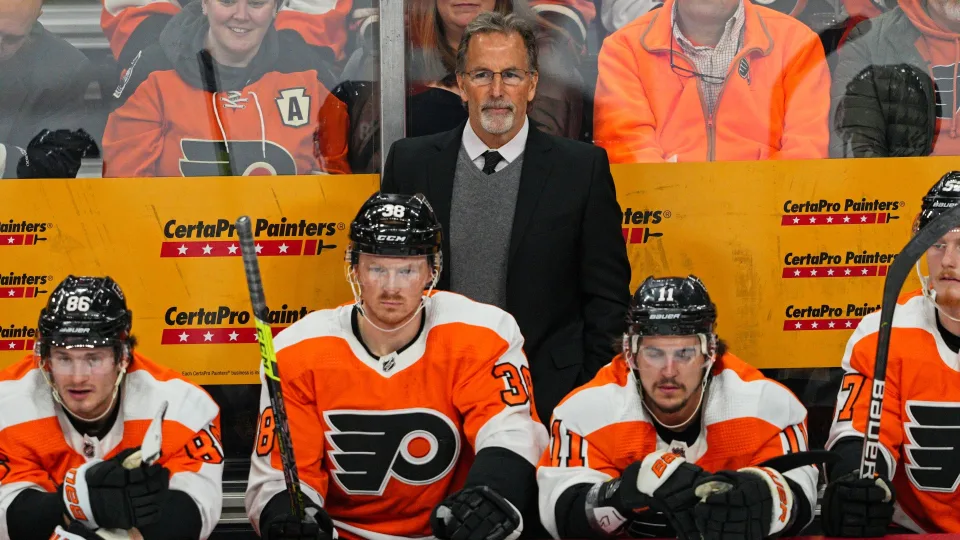Bell Lets Talk! Day was this past week, which inspired fingers to keyboard here on a Friday that feels more like mid-Spring than late-January!
This year, the Bell Lets Talk! Day seems to be taking – in wrestling jargon – “lots of heat” for being shouldered by a corporation which cares only about corporate profits and not about its employees. I could go off on a gigantic tangent about why BCE has no choice but to cut staff, but it would be incredibly boring and it’s Friday. So f^*k that. What I will say is I still support Lets Talk! Day because of what sharing the hashtag signifies. In my opinion – by sharing/liking/promoting this day, it says that our company recognizes that mental health is an issue, and is here to listen to people who need a person(s) to turn to in times of need. We are always here for people who need it – hockey player, parent, coach, friend, or family member.
*** Disclaimer – a great deal of people struggle with self-confidence. But for this article, we will focus on hockey players and how to combat fluctuations in on-ice confidence during a game.
Self Confidence (def’n) – “a feeling of trust in one’s abilities, qualities, and judgement”. Who knew such a short sentence would be so difficult to foster, attain, and retain! I remember playing my first season of Junior ‘A’ with the Pembroke Lumber Kings (CCHL). We were playing on the road in Ottawa at the Jim Durrell Sports Complex this one particular night (this was – I’d be willing to bet – 20 years to the day. January ’03. Seems like yesterday but time is wind). This was not one of my memorable seasons – I barely played from November until the beginning of March – but I had a pretty good game leading into this one and had a good week of practice. In other words, I had a John Cabot boat load of confidence going into this particular game. Our coach – George Dupont – started our line and we lost the draw. Puck gets chipped into our zone, and our D gets there first. As a weak side winger you can see it coming – heavy F1 pressure, right-handed D playing his off side, you know it’s coming but hopefully he has space to take a step and make a direct pass. Instead I got a heat-seeking missile rim, I couldn’t get it out, puck ends up on net from the point and they score on the rebound. I didn’t play the the rest of Period 1. In about 17 seconds, my confidence went from brimming to beaten. This doesn’t always happen in the first shift, either. You could be having the game of your life and all-of-a-sudden, one bad bounce and you’re a -1. Then a -2. Then the great game you were playing is a distant memory.
How do you ‘stay up’ after this happens? Read on.
Tip #1 – Focus on the good. As a society, we are conditioned to think negatively about everything because of our surroundings. Don’t believe me? Flip on the 6 o’clock news, scroll down through Twitter, and/or watch a movie. How does a movie relate? Every fictional tale requires a conflict to be solved. The pattern is predictable – every movie plot centres around a principle problem. Negative negative negative. Out of habit, our brain shifts towards the negative, doom-and-gloom scenario when mistakes happen on the ice. Tip – break the habit loop. You probably did 5 good things on the ice before that one mistake – a good pass, a smart read to keep the puck in, a nice shot on goal, or even something as simple as getting open to put yourself in the position to make a puck mistake. Focus on those things.
Most mistakes don’t result in a goal, either. That’s why we have a goalie, a forward line, a D partner. You’re there for one another. It’s a team sport, after all.
Advice for pro players – if you’re using tablets on the bench, DON’T go and watch your mistake over and over. Go back after the game and take a closer look at what happened so you can learn from it, and build from it in practice. Obsessing over a negative outcome will put your mind into a negative state in the short term, which does not bode well for subsequent shifts. Visualize the good things, positive self-talk, positive emotions. For once, I agree with John Tortorella (article here ).


Note*** I am a huge proponent of the use of video. I think video is a tremendous tool in order to help players identify, correct, and learn. However, what Tortorella says in the above article is very true. There is a fine line between tool and terror. Negative reinforcement is not good for confidence-building, and obsessing over a negative outcome does nothing for a players psyche (my opinion).
Tip #2 – Get back to basics. This is incredibly hard to do after you make a mistake – especially one that leads to a goal against – because you want to ‘make up for it’. You double down on things, you put things on your shoulders and try and do too much. This happens at the pro level of sport – don’t believe me? If you watched the San Francisco 49’ers vs Philadelphia Eagles last week, this happened a lot. The ‘9ers defence – one of the top-ranked units in the NFL – frequently missed assignments in their run defence because players tried to do someone else’s job, pressing to make a big play to turn the momentum around. Players that try and do too much after a mistake end up in metaphorical quicksand – digging themselves deeper into a hole with more effort.
Instead – get back to basics. Make the easy choice. Trust your first read and zip it in. Win your next 1v1 loose puck battle. Take a wrist shot from the point that hits the net (it can be a muffin) vs the spin-o-rama toe drag back door pass. If we do enough of these simple tasks effectively, we will gradually gain positive results more often than not.
I think that coaches have a large role to play in the improvement of players in-game, on-ice confidence. If I’m a player and I make a blatant mistake that leads to a goal, the coaches actions and words afterward goes a long way. A cold shoulder and a lengthy bench visit are actions and words that are not helpful. If I’m being honest, it’s something that I have to improve as a coach and have been guilty of doing the aforementioned things in tournaments/big games. No matter what you do in life, continuous improvement is necessary and I have to continue to improve word choice, body language and having faith in my entire bench in big spots.
Until Next Time
AP
